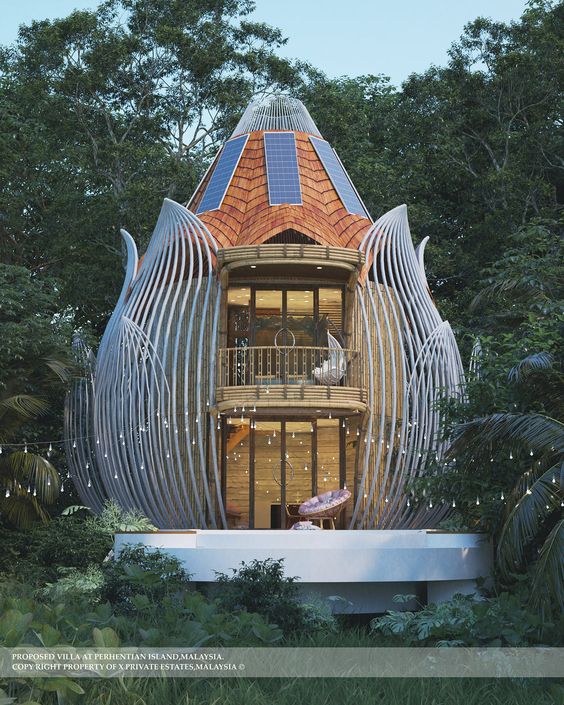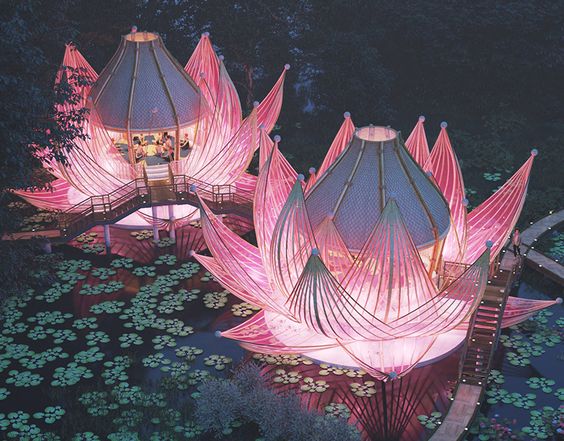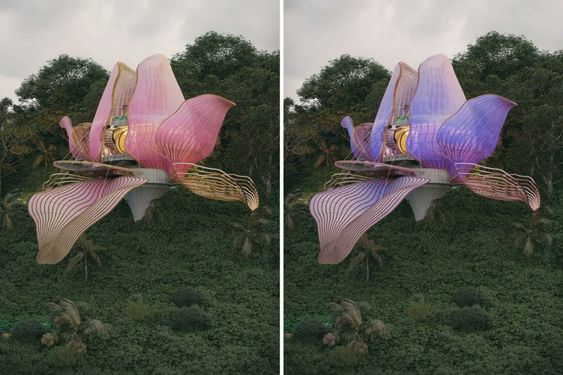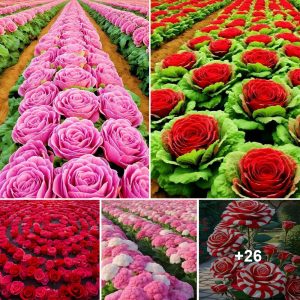In the realm of architecture, there exists a unique and captivating form that embodies the essence of beauty and serenity: the lotus-shaped house. Inspired by the graceful petals of the lotus flower, these architectural marvels stand as testaments to human creativity and ingenuity, blending seamlessly with their natural surroundings while exuding an aura of tranquility and elegance.

At first glance, a lotus-shaped house appears like a blooming flower, its curved walls and flowing lines mirroring the gentle contours of the lotus petals. Constructed with meticulous attention to detail and precision, these houses embody the principles of harmony and balance, creating a sense of unity between the built environment and the natural world.
One of the most striking features of lotus-shaped houses is their organic design, which seamlessly integrates with the surrounding landscape. Whether nestled amidst lush greenery or overlooking serene waters, these houses harmonize with their surroundings, creating a sense of continuity and oneness with nature. From every angle, they offer breathtaking views and a sense of tranquility that soothes the soul.

Moreover, lotus-shaped houses are not only aesthetically pleasing but also environmentally sustainable. Designed to maximize natural light and ventilation, they minimize energy consumption and reduce their ecological footprint. Green roofs, solar panels, and rainwater harvesting systems further enhance their eco-friendly credentials, making them shining examples of sustainable architecture.
Beyond their practical benefits, lotus-shaped houses evoke a sense of wonder and enchantment in those who behold them. Their ethereal beauty and timeless elegance captivate the imagination, inspiring a sense of awe and reverence for the natural world. Whether admired from afar or experienced firsthand, these architectural marvels leave an indelible impression on all who encounter them.


In addition to their architectural significance, lotus-shaped houses hold cultural and spiritual significance in many societies. In Eastern traditions, the lotus flower is revered as a symbol of purity, enlightenment, and rebirth, imbuing these houses with deeper layers of meaning and symbolism. As such, they serve not only as dwellings but also as sanctuaries for the soul, nurturing a sense of inner peace and harmony.

In conclusion, the beauty of lotus-shaped houses lies not only in their elegant design and harmonious integration with nature but also in their ability to inspire and uplift the human spirit. As symbols of creativity, sustainability, and cultural heritage, these architectural marvels stand as beacons of hope and renewal in an increasingly complex world, reminding us of the timeless beauty and wisdom inherent in the natural world.





